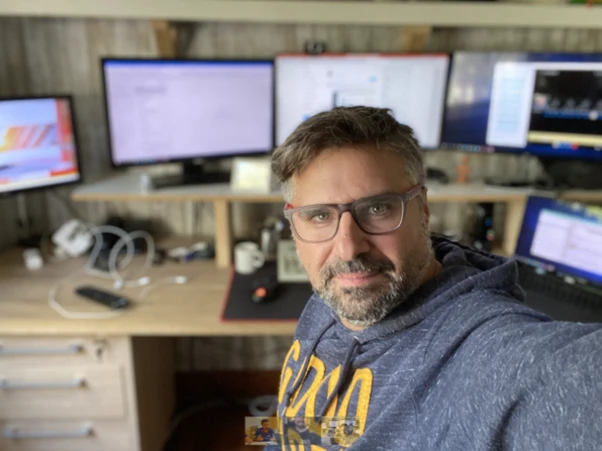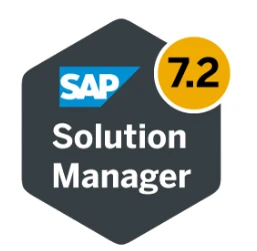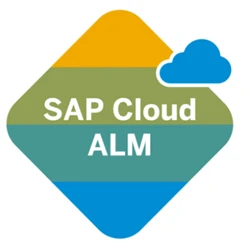Eursap’s Ask-the-SAP-Expert: Wence Lacaze, SAP Mentor
Eursap’s Ask-the-SAP-Expert: Wence Lacaze, SAP Mentor.
Eursap’s Ask-the-SAP-Expert article is a feature designed to give you up-to-date information on the latest SAP news, featuring key thought leaders in the SAP space, as well as regular interviews with the best SAP consultants in the business.
This month, we feature Wence Lacaze, SAP Mentor since 2013, and expert in SAP Solution Manager, SAP CloudALM, and ServiceNOW. Wence has spoken at many SAP conferences and is a hugely respected member of the international SAP community.

Hi Wence, thank you for taking the time to chat to us. We always like to start these interviews with a little bit of background about you – can you tell us a little bit about yourself?
WL: Hello, thanks for the invitation! I was born in Argentina, in a small town in Patagonia. I went to university to study computer science and worked at the same time in technical support. When I graduated I went to live in Italy and started working in a company migrating from AS400 to SAP - at that time, using SAP Solution Manager 3.1. Then I started to work as a freelance contractor and moved to different countries based on the project location. During this time, I lived in Italy, Mexico, Bahrain, Serbia and France – it was a great experience.
This last year has been especially difficult for freelance contractors.
WL: Totally agree, these times of Covid-19 are really hard for everyone, and for freelancers more so. But the good thing is that all this has helped to promote more remote work, and this will help freelancers to find jobs outside their local areas. The market will start to be more flexible and willing to taking consultants from other countries. This will bring benefits for everyone: for the client the rate is lower and there are more resources available; for the consultant there will be less travel requirements and we can enjoy lower costs and more time with the family.
How has the pandemic affected you professionally?
WL: I usually work remotely and visit the client every three to four weeks to have talks and share coffees, which is the best way to understand what their problem really is, because we need human contact. Now with Covid-19, I’m not travelling and obviously it is harder to keep the relationships.
What does a typical day look like for you now?
WL: I wake up early and usually check my emails (I work with European clients, so my inbox always comes up with news), then I have breakfast with the family, and when they start remote school by Zoom, I start with my Teams meetings for the rest of the day.
What made you make the move from systems administration into the Application Lifecycle Manager (ALM) world?
WL: I started as a Basis guy, but I found in ALM the place where you can really expand: you can cover system monitoring, change management, test management, ITSM [IT Service Management], code, etc. and the good thing is that everything is related. That's why you need to know everything regarding the functionalities to use it in the best way. System administration only covers the technical part – in ALM you need to cover the technical and functional part, otherwise success is impossible. For example, on several occasions I see CHARM [Change and Release Management] implemented by basis and maybe technically it is working, but the company doesn’t see any real value because it does not represent the real change process for them.
Much of your work now is with SAP Solution Manager. From experience, it seems many organisations only use SAP Solution Manager from a basis perspective to manage their transports, and yet there is so much more which the product has to offer. How do you get companies to realise that?
WL: That's the hard part! There are a lot of quick wins that you can use in the SAP Solution Manager and you don't need to have a huge project to make improvements. In these Covid-19 times, the budget in some cases is lower and that's why these quick wins are a fantastic opportunity to show the client that SAP Solution Manager can still bring more without big budgets. Functions like Simple IT request, ATC [ABAP Test Cockpit] and Test Step Designer, are great and are ready to use (or almost).
You work very closely with SAP and ServiceNow, by way of the SNOW adaptor. Tell us a bit about why this is such an important product?
WL: The SNOW adaptor is the integration between the two worlds: ServiceNOW, which is more oriented to the simplicity of managing the support and changes from the business user perspective, and SAP Solution Manager, which is more related to technical changes and more of an IT Tool. The gap between both tools was the original problem we tried to solve with creating the SNOW adaptor.
It’s an interesting mix, as many would think of SAP and ServiceNow to be competitors in the ALM and (ITSM) area. How has this market area evolved in recent years?
WL: ServiceNOW is moving very fast in a market that is moving in the same direction, based on the cloud solution with the SaaS [Software as a Service] model, and ServiceNOW understood that before anyone else. Bringing in Bill McDermott [former CEO of SAP] as the new CEO was another great move, as he really knows how to read the market and can do the same of he did with SAP. ServiceNOW will be a huge success.
ALM is more than ITSM and competing with ServiceNOW for the market doesn't make much sense, and when you see that SAP CloudALM doesn't have any ITSM solution, you clearly see which direction SAP is going.
Good point. Can you talk to us a little bit about SAP’s new ALM offering: SAP CloudALM, as launched in 2020. In your view, is this a game changing product?
WL: CloudALM was SAP's answer to SaaS for ALM and right now it is something you really should pay attention to. Maybe now it is not so useful because it is very specific to some scenarios, but I am sure it will become more relevant as time goes by. The pace of improvement is fast and the team behind it is taking a different approach: they want to be a true cloud company and they are releasing functionality at a very fast rate. There are still some aspects that need to be improved, such as the API center for CloudALM, but they are going in the right direction.
Tell us about your role as an SAP Mentor – firstly, for the benefit of our readers, what exactly is an SAP Mentor?
WL: SAP state that “SAP Mentors provide guidance and feedback on SAP technologies and strategies.” To be honest it is a group of people who love what they are doing, and they love the SAP product! I say "love", not “in love” because the big difference is that we accept the way the product is and we help SAP to improve the product with our vision, which is more market related.
How did you become an SAP Mentor?
WL: The influencer programme has different flavours and there is a nomination process. The classical SAP Mentor and the new SAP Champions are involved with contributions to the SAP ecosystems like blogging, sharing, speaking and events. You can check more info here: https://community.sap.com/programs/influencer-programs
Personally, a recognition of your knowledge by SAP is always something that you can be proud of. Another great thing is that you are invited to present at SAP events (Teched, SAPPhireNow, etc) and this give you more visibility.
The SAP space is moving and changing so fast now. Can you give our readers an insight into how you keep your skills and knowledge fully up to date with all the new trends?
WL: Mainly my way to keep my skills up to date is by testing the new functionalities. if you are lucky enough you can have a customer that likes the improvement and you can work with them. Opensap and SAP LearningHUB are also good places to learn new stuff.
And of all the new trends in SAP, like RPA, IoT, Machine Learning, Blockchain, chatbots etc., what do you see as being the most important in years to come?
WL: Machine Learning with RPA I think will be the most important from my perspective.
What advice would you have for new SAP consultants just starting out? In fact, also any advice for established SAP consultants who are confused by staring at the bewildering new capabilities and technologies in the SAP space?
WL: CloudALM with soft skills will be my bet for the next big thing in this space. I also think that the next big change from SAP’s perspective will be the way that ERP’s are implemented. In the past usually you spent a lot of time and money on really long implementation projects, but with the new reality now, the customised SaaS solution will be the leading topic and SAP CloudALM is going in that direction, helping the customer to keep control over what they are implementing.

